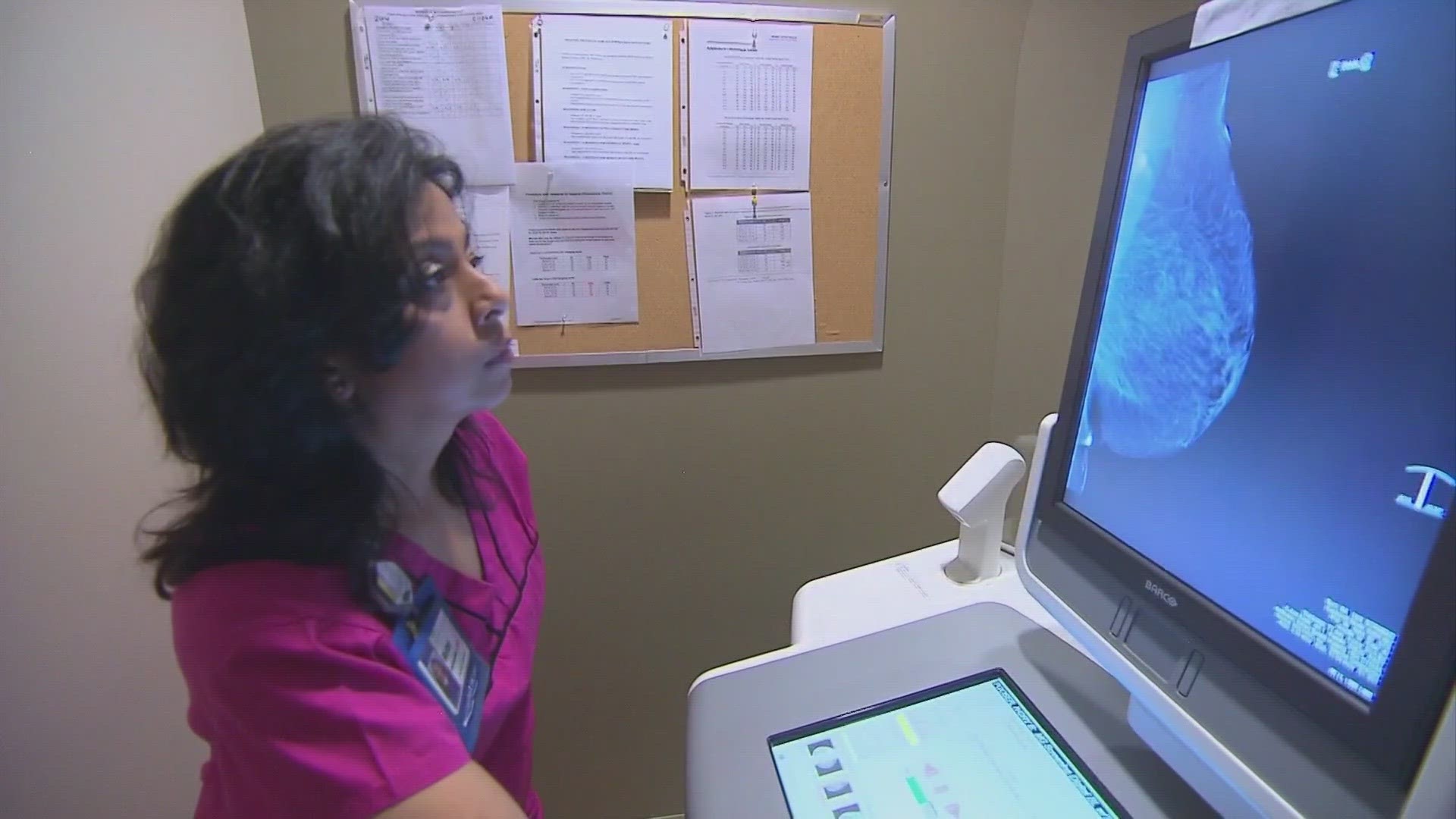SEATTLE — When should women start screening for breast cancer?
In the last 20 years, recommendations have gone back and forth with the latest guideline issued this month, recommending women have the option to start screening for breast cancer with mammograms a decade earlier than previously recommended.
The U.S. Preventive Services Task Force (USPSTF) recommends women at average risk of breast cancer can now have the option of getting a mammogram every two years starting at age 40.
In previous years, the task force recommended that women start screening between the ages of 40 and 50, based on their own individual decision. Now it recommends all women start getting screened when they turn 40.
Dr. Brian Dontchos, a diagnostic radiologist with specialty training in breast imaging at Fred Hutchinson Cancer Center, said the switch makes sense.
"I think this reduces patient confusion, with more alignment of guidelines," Dontchos said.
Women who have started screening earlier due to family history said they have been able to catch their breast cancer at an early stage.
Gabrielle Foley of Seattle said doctors at Providence Swedish Hospital discovered her breast cancer in April 2022 when she had a second mammogram. She started screening for breast cancer when she turned 40 in 2021, due to her family history of breast cancer.
"It was so instrumental in me being able to get treatment, have surgery and now be back to kind of my regular life now," Foley said.
She said she was excited to hear of the new recommendation of starting at an earlier age of 40 knowing it can save lives.
"I definitely encouraged friends and family to talk to their doctors to be able to get mammograms as soon as possible," Foley said.
Dontchos pointed out that previous recommendations' intent at the time was to avoid overscreening, which can lead to unnecessary recalls from screening, unnecessary biopsies and potential overtreatment of very early-stage breast cancer.
The age 40 to 50 recommendation also remained at odds with other groups' guidelines of starting mammograms at age 40, such as groups like the American Cancer Society, which recommends women should have the option of starting mammograms at age 40.
This year, the USPSTF reverted its guideline back to age 40 due to an increasing number of breast cancer rates among younger women and women of color.
"In the last decade or so, we are starting to see increasing numbers of women being diagnosed with breast cancer at earlier ages," Dontchos said.
Dontchos added the reason for increased cases of breast cancer among younger women is still unclear but it's being researched. Studies have shown women delaying childbearing and not breastfeeding may be a factor.
While it's recommended 40 is an OK time to begin mammograms, Dontchos says starting at age 25, women should start risk assessments by checking on family history and talking with a physician if they are at higher risk or not.

